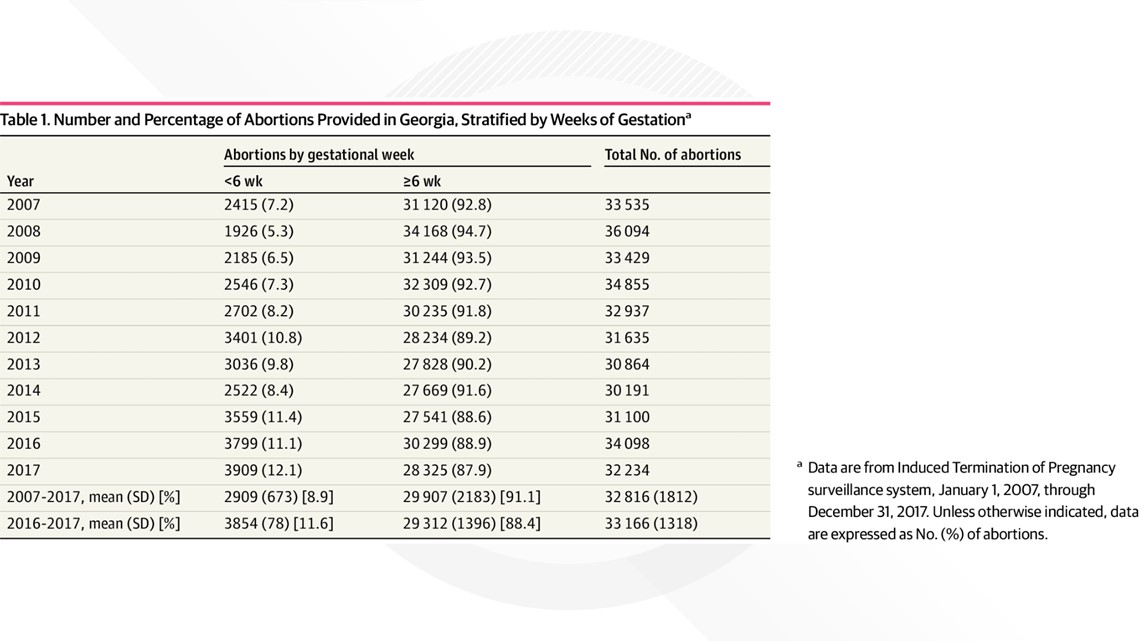ATLANTA — Nearly 90% of abortions performed over a 10-year period in Georgia would have been denied if the "heartbeat" abortion law existed then, according to a study from Emory University.
The mission of the study was to look at the future impact on women following the passing of Georgia's abortion law that bans the procedure after a heartbeat is detected. Researchers used Georgia Public Department of Health data from Jan. 1, 2007, to Dec. 31, 2017, and said "ranging from 88% to 95%" of abortions done in Georgia is after the six weeks, which is when a heartbeat is typically heard.
“We knew it was going to take a while for us to have the data to actually measure the impact once that bill went into place," Dr. Elizabeth Mosley, an Assistant Professor at the University of Pittsburgh and affiliated with Emory University RISE Center, "But we could estimate what the impact could be, and that helps people like clinicians on the ground and advocates be better positioned to respond.
It also provides a look at who the bill may impact the most: Black people, younger patients and those with less education. Researchers said with the new restrictions, many of these patients won't be able to access safe, legal abortions.
Out of over 360,000 abortions that took place in that 10-year time period, only 12% of those would be legal in 2023.


Lack of access to safe and legal abortion could also add to the maternal mortality rate in Georgia, Mosley said, with numbers showing a possible increase of 18%.
A pro-life activist is calling the report disingenuous and believes all abortion is a form of genocide.
"It’s basically saying that it is harming Black women…if they are not allowed to kill their babies," Carminthia Moore said. "They’re not losing access to abortion, unfortunately; it’s just after 6 weeks."
In 2019, according to the Center for Reproductive Rights, Georgia had the worst maternal mortality ratio of any state in the country. Black, American Indian/Alaska and Indigenous women are also two to three times more "likely to die from a pregnancy-related cause than white women."
Experts said overturning Roe v. Wade will disproportionately affect communities of color in Georgia, as for years, they have already faced many barriers to maternal health.


"Folks who already go through so much to come to our center, these are folks who are Black or brown, who are immigrants, who are refugees, who are survivors of violence, those are the folks whose stories often don’t get seen," Naomi Desta-Bell said last year before Roe was overturned.
Desta-Bell is Community Outreach Manager for the Feminist Women's Health Center. Her nonprofit offers an array of services to patients, including a full-service GYN and abortion clinic.
"And who will have the most difficult time accessing the most important critical abortion care that they need," she said in 2022.

